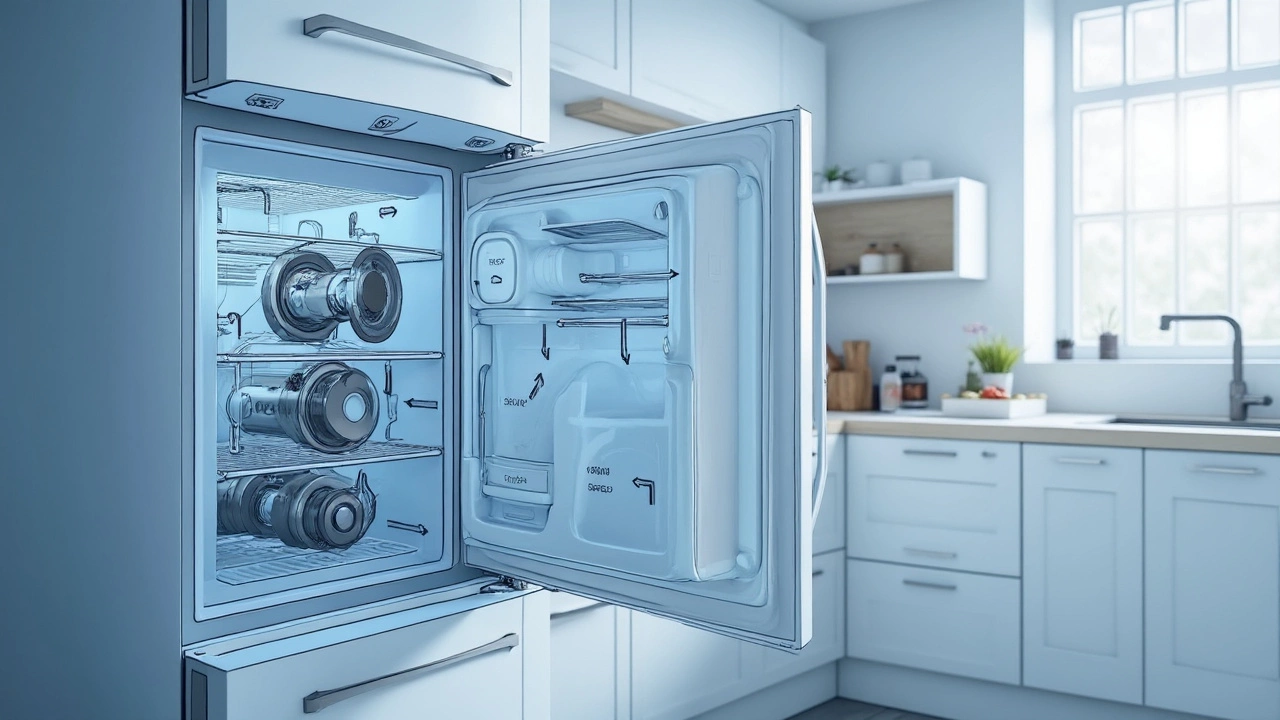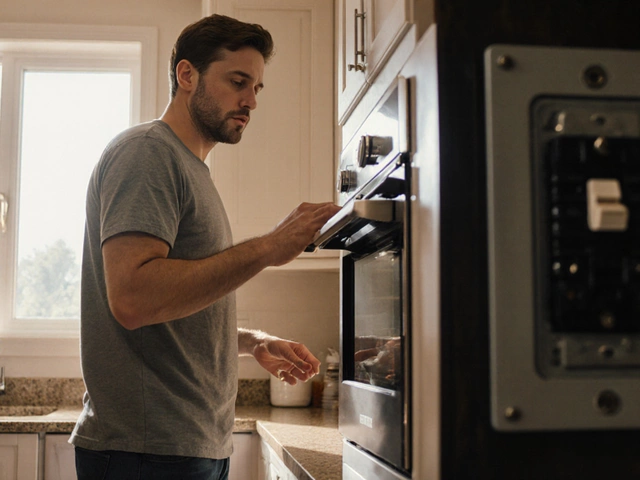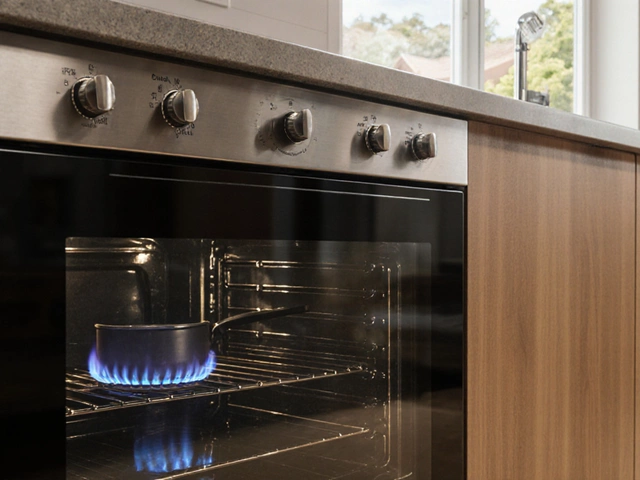So, your freezer's acting up. Before you panic and rush to buy a new one, let’s talk about the compressor—the heart of the freezer. A faulty compressor is often the culprit when things start to go south with your freezing buddy. But hang on, is it worth shelling out cash to replace it? Or is it better to just say goodbye and invest in a shiny new model?
Here’s the deal: compressors do the heavy lifting by pumping refrigerant through the system, keeping everything cool as a cucumber. But like all good things, they can run into trouble after years of use. Maybe your freezer’s not keeping stuff frozen like it used to, or you hear some weird noises—it’s time to figure out if the compressor is on its last legs.
- Understanding the Freezer Compressor
- Signs Your Freezer Compressor Needs Replacing
- Costs vs. Benefits of Replacing a Compressor
- Alternatives to Compressor Replacement
Understanding the Freezer Compressor
Let’s get into the nitty-gritty of what makes your freezer tick: the compressor. Think of it as the engine of the freezer, driving the cooling process. The compressor works by compressing refrigerant gas and pumping it through a series of coils inside the freezer. This action cools down the refrigerant and turns it into a liquid, which absorbs heat from the freezer compartment. Pretty neat, right?
The compressor is powered by an electric motor. When it kicks in, it usually hums along quietly, which is a sign everything's working just fine. However, any strange noises or frequent cycling on and off could signal trouble. This could mean the motor is working overtime, which isn’t great news for your electric bill or your freezer’s lifespan.
Let's break it down further with a mini science lesson in table form:
| Component | Function |
|---|---|
| Refrigerant | Carries heat out of the freezer to keep things cool. |
| Compressor | Pressurizes the refrigerant and pushes it through the system. |
A functioning compressor ensures your food stays frozen and fresh, and it’s critical in keeping energy consumption reasonable. If it’s not working efficiently, it can cause your freezer to become a major energy hog, leading to spikes in your bills.
So, understanding the compressor isn’t just about fixing problems—it's about keeping everything chilled the way it should be without breaking the bank.
Signs Your Freezer Compressor Needs Replacing
Alright, let’s get into how you can tell if your freezer's compressor is calling it quits. Just like how you notice when your car starts making funky noises, your freezer might give out signs that it's not happy.
First up, pay attention to noise. If you hear loud or strange sounds coming from the back of your freezer, it might be the compressor struggling or failing. Sure, these things are never completely silent, but if it's like a rock band back there, something's up.
Another clue? Temperature troubles. Is your freezer not cold enough? Or maybe it's freezing over like an arctic tundra? Both could mean compressor issues. And if adjusting the thermostat isn’t fixing things, it’s time to look deeper.
Thirdly, keep an eye on your electricity bill. A busted compressor might cause the freezer to work overtime, using way more energy than usual. If you notice a sudden spike in energy usage without any other explanation, it could be your compressor burning through electricity.
Lastly, frequent breakdowns are a red flag. If you’ve had to call the repair guy more than your mom this month, it might be better in the long run to just replace the compressor or even consider a new freezer.

Costs vs. Benefits of Replacing a Compressor
Alright, so let's get down to the nitty-gritty of replacing that stubborn freezer compressor. Is it really worth it? Here's the scoop: if your freezer is an all-star from the last decade, replacing the compressor might make sense, but if it's more aged than your wardrobe’s oldest pair of jeans, well, think twice.
Replacing a compressor can set you back anywhere from $200 to $500, including labor. Pretty steep, right? Especially when you can snag a new freezer for about the same cash. But if your freezer is relatively young and in good shape apart from the compressor issue, this might be a savvy move.
Now, let's talk benefits. A new compressor can make your freezer run like a well-oiled machine again. You could see some real savings on your energy bills because newer compressors tend to be more efficient. Win-win!
But remember, costs aren't just about money. Consider the downtime during repairs and the hassle of scheduling service. Plus, nobody enjoys cleaning up melting ice cream!
To crunch the numbers, it’s a good idea to compare the annual energy cost savings with the repair bill. You might find that over a couple of years, the compressor replacement pays for itself.
| Age of Freezer | Replacement Worth It |
|---|---|
| Less than 5 years | Often Yes |
| 5 to 10 years | Maybe, consider the cost and condition |
| Over 10 years | Usually No |
Ultimately, when deciding what to do about your freezer and its faulty compressor, consider both the financial aspects and the comfort factor. Are you up for a repair rendezvous, or is your freezer ready for retirement?
Alternatives to Compressor Replacement
Alright, so replacing a freezer compressor can sometimes feel like swapping the engine of your car—not exactly cheap or simple. But before you dive into that, let’s explore some other options that might save you both time and money.
First, make sure it’s really the compressor that’s the problem. Sometimes, simpler fixes like cleaning the coils or replacing a faulty thermostat can do the trick. Dust and dirt build-up on the condenser coils can make your freezer work overtime. A quick cleaning could restore its chill without a hefty repair bill.
Another option is checking the temperature settings or inspecting the door seals. If the rubber gasket around the freezer door is worn or damaged, it can let the cold air out and cause the compressor to work harder than necessary. Replacing a gasket is way easier and cheaper than a compressor swap.
Sometimes, it’s just about optimizing performance. If your freezer is crammed full or empty, it can affect how well it maintains the temperature. Keep it about three-quarters full to let the air circulate properly.
If your freezer is relatively new and still under warranty, reaching out to the manufacturer or a certified repair service might be a smarter move. They could cover the compressor replacement or offer solutions that don’t involve you digging deep into your wallet.
Ultimately, weigh these alternatives against the cost and stress of replacing the compressor. Just like any appliance repair decision, consider all options and pick what makes the most sense for your situation.







